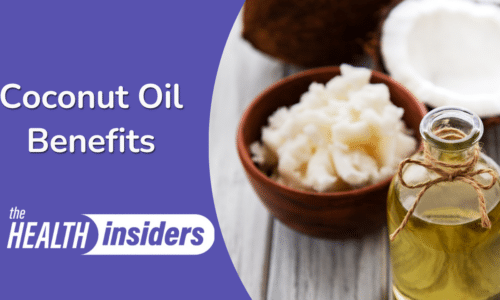Feeding Your Kids: Expert Tips for Nutrition, Solids, and Snacking |

Feeding your kids can be one of the most challenging parts of parenting. Whether you’re navigating breastfeeding versus formula, introducing solids, or dealing with a picky eater, each stage of your child’s nutrition journey comes with its own set of questions. Dr. Scarlet Constant, founder of Constant Care Pediatrics, answered a wide range of viewer questions about feeding and nutrition to help parents give their children the best start in life.
Breastfeeding vs. Formula: What’s Best for Your Baby?
First-time parents Patrice and Avery wanted to know whether breast milk or formula is better for their newborn.
“Breastfeeding is often favored for its unique benefits,” explained Dr. Constant. “Breast milk provides antibodies that help protect babies from illnesses during those critical first few months. It also fosters bonding between mom and baby.”
However, she emphasized that formula is a perfectly valid alternative. “Modern formulas are designed to emulate breast milk as closely as possible and include essential nutrients like vitamin D and iron, which breast milk doesn’t provide in sufficient amounts. Ultimately, the decision should be based on what works best for the family.”
When to Introduce Solid Foods
Yuki, a mom to a five-month-old, asked if it was too early to start introducing solids.
“Current guidelines suggest introducing solids between 4 and 6 months, depending on your baby’s readiness,” said Dr. Constant. Signs of readiness include good head control, the ability to sit upright, and an interest in food.
She reminded parents that introducing solids at this stage is more about exploration than nutrition. “In the early months, solids are for practice, not to replace milk or significantly increase caloric intake.”
Helping Picky Eaters Adjust to Solids
Yasmin shared her struggle with her son Amir, who wasn’t embracing solids. Dr. Constant reassured her that this is normal.
“Introducing solids is a gradual process. Start with small amounts once or twice a day and offer a variety of foods to spark interest,” she advised. “Don’t stress about nutrients at this stage—milk remains the primary source of nutrition until around 12 months.”
Healthy Snack Ideas for Toddlers
Mano asked for snack suggestions for his toddler, who resists structured meals. Dr. Constant shared some nutritious and easy-to-prepare options:
- Sliced fruits like apples or pears
- Whole grain crackers for a healthier alternative to starchy snacks
- Cheese cubes for calcium and protein
- Yogurt sticks, especially when refrigerated for teething toddlers
- Veggies with hummus for a protein-packed, low-sugar option
- Smoothies to sneak in fruits, vegetables, and grains
- Ants on a Log (celery with peanut butter and raisins) for a fun, balanced treat
Vitamin D for Breastfed Babies
Izzy asked whether exclusively breastfed babies need vitamin D supplements. Dr. Constant confirmed that they do.
“Breastfed babies should receive 400 IU of vitamin D daily to ensure proper bone development and prevent deficiencies,” she said. Formula-fed babies usually get enough vitamin D from fortified formula, as long as they consume one to two bottles a day.
Diet Trends for Teens: Are They Safe?
Juliet’s teenage athletes were curious about trendy diets like keto and intermittent fasting. Dr. Constant urged caution.
“Teens are still growing and need about 3,000 calories a day to fuel their development and activities,” she explained. “Extreme diets can lead to nutritional deficiencies and aren’t recommended unless closely monitored by a nutritionist. A balanced, high-protein diet is usually sufficient for active teens.”
The Impact of Junk Food on Mood and Performance
Clancy asked how junk food affects teenagers’ academic performance and mood.
“Junk food, with its high sugar and caffeine content, can cause energy spikes and crashes, impacting attention span and emotional regulation,” said Dr. Constant. “Over time, poor eating habits can lead to health issues like high cholesterol, even in teens. Encouraging healthier choices is critical for both physical and mental well-being.”
Handling Food Allergies
Cordelia shared concerns about her toddler, Olive, who developed hives after eating egg whites. Dr. Constant advised avoiding eggs entirely and consulting a pediatrician for allergy testing.
“If confirmed, an allergist can guide you on whether and when to reintroduce eggs safely. Avoiding all egg products, including those baked into foods, may be necessary in the meantime,” she said.
Tips for Introducing Whole Grains
Blanch wanted advice on incorporating whole grains into her child’s diet.
“Start early,” Dr. Constant recommended. “Introduce oatmeal, quinoa, and whole-grain bread when your child begins eating solids. Add whole-grain granola to yogurt or blend quinoa into smoothies for an easy, nutritious boost.”
The Bottom Line
Feeding your kids doesn’t have to be a constant battle. By understanding their developmental stages, offering nutritious options, and maintaining realistic expectations, parents can ensure their children receive the nutrition they need.
Have questions about feeding, nutrition, or parenting? Submit them to questions@allhealthtv.com, or connect on Facebook or YouTube. Dr. Scarlet Constant is here to help make feeding your kids just a little easier.








